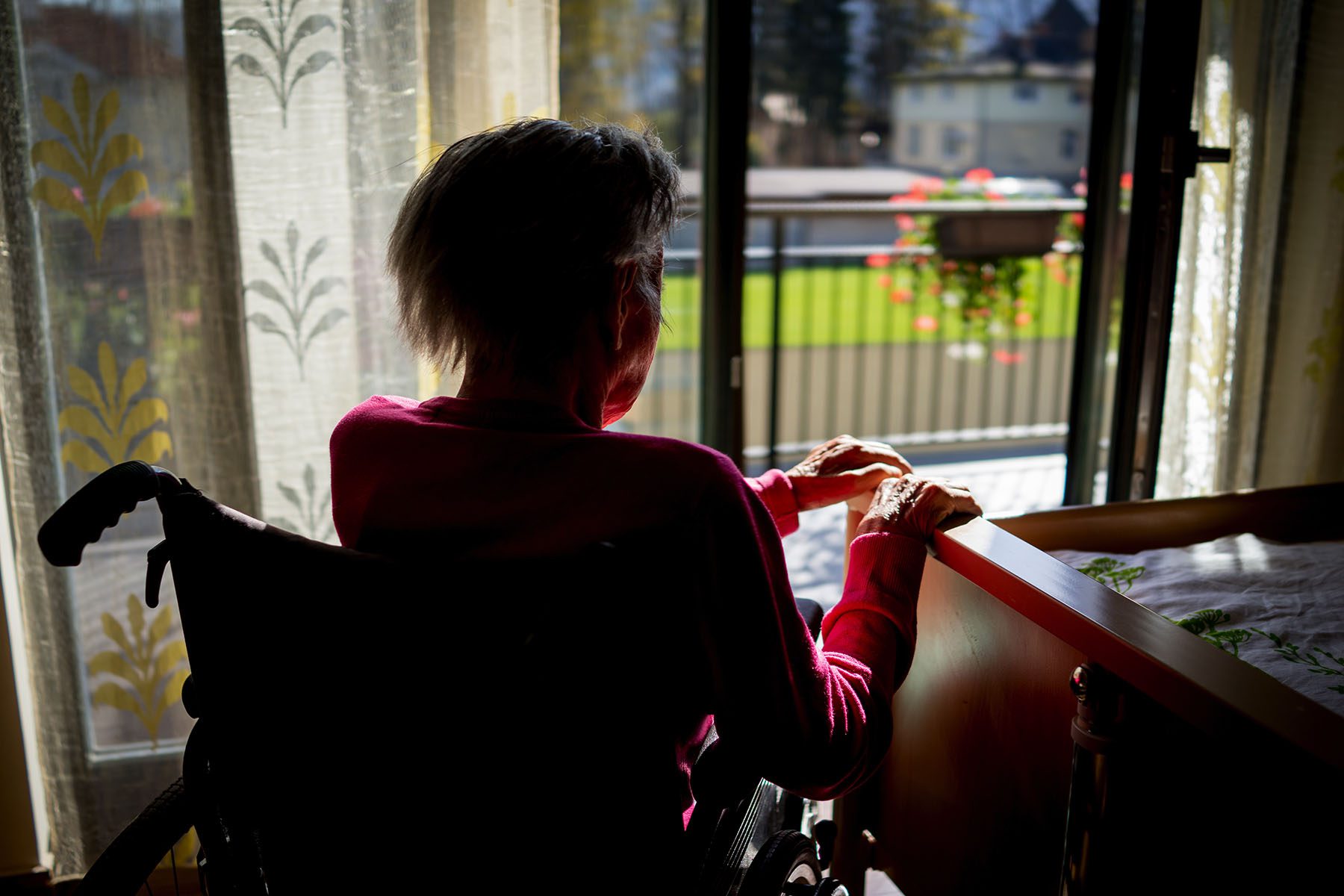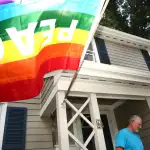Almost everyone faces challenges as they age, but LGBTQ+ seniors face particular risks. As a result, many are going back into the closet to receive long-term care they need.
Michael Adams, CEO of LGBTQ+ senior advocacy group SAGE, said that more than a third of LGBTQ+ people may hide their sexual orientation or gender identity when they go into elder care for fear of discrimination and mistreatment.
“And frankly, those fears are reality-based,” Adams said. It is a story he has heard many times from the LGBTQ+ elders SAGE serves. “Re-closeting themselves is a tragedy at that stage of life. It’s erasing every trace of who we are as LGBTQ people.”
In addition to advocacy, SAGE provides volunteers to spend time with LGBTQ+ seniors, who are more likely to be isolated. Adams said he has heard thousands of stories from SAGE’s volunteers and the seniors they serve.
“There was an elderly gentleman who had a home care attendant coming into his home for the first time. He wanted all of the pictures of him and his partner taken down [out of fear],” Adams said. “He used a walker and was able to get the ones down off the shelves and tables himself, but he couldn’t reach some of the ones on the walls.” SAGE sent a volunteer to help him. “It was heartbreaking to hear that story. And it happens over and over and over again,” Adams said.
It is difficult to know exactly how widespread the problem is. According to a new report from AARP New York and SAGE, a third of LGBTQ+ seniors in New York worry they will have to re-closet themselves to access senior housing and long-term care. This was a particular concern among transgender and gender-nonconforming seniors. Over half reported fear of having to reenter the closet when they seek new housing settings. The issue may be more severe in parts of the country more conservative than New York.
SAGE has been working on multiple fronts to address danger to LGBTQ+ seniors as they enter long-term care.
“We have a series of SAGE centers, in the old days you’d call them senior centers, across New York City,” Adams said. “These are places that [LGBTQ seniors] know they can be who they are, and that they’ll be embraced and celebrated for it.”
They also provide training for general eldercare providers across the United States. “It’s not possible to build an entire parallel universe of services and care for LGBTQ older people,” he explained.
Re-closeting is an issue in both home care and residential settings. Adams expressed particular concern about care agencies and facilities operated by faith traditions hostile to LGBTQ+ people. But secular elder care agencies and facilities still carry risks. “Most agencies have no training and no policies regarding fair, non-discriminatory treatment of LGBTQ elders. So basically, employees are left to their own devices about how they interact with [LGBTQ] elder folk… And the results aren’t pretty.”
Some LGBTQ+ seniors have been more fortunate. Howard Grossman and his husband, Bradford, live in Stonewall House, a senior residence that specializes in serving LGBTQ+ seniors in Brooklyn. The building contains a SAGE senior center and is entirely reserved for seniors making 50 percent or less of the area median income. In order to vie for a spot in the building, prospective residents have to enter a lottery — spaces are exceeded by demand and need.
There are social workers on site who can help residents access services and support as they age. Bradford, for example, recently started using a walker. There is also a medical coordinator on site.
Grossman and his husband have been together since the 1980s. They had also long fantasized about living in an LGBTQ+ retirement community.
“You see the movies and you read the books about gay couples that go to a retirement community, and there’s other gay couples and different lifestyles there, and everybody cohabitates, and you enjoy your aging years,” Grossman explained.
Still, they didn’t think it was something they’d be able to do themselves: “It’s a great dream, but it’s probably never going to happen for us,” he remembers thinking.
Then they heard about Stonewall House. They entered a lottery for one of the affordable housing units and got lucky. “I’m so happy I was able to move here. Now I feel safe, and I have a community and I have people I can reach out to,” Grossman said.







